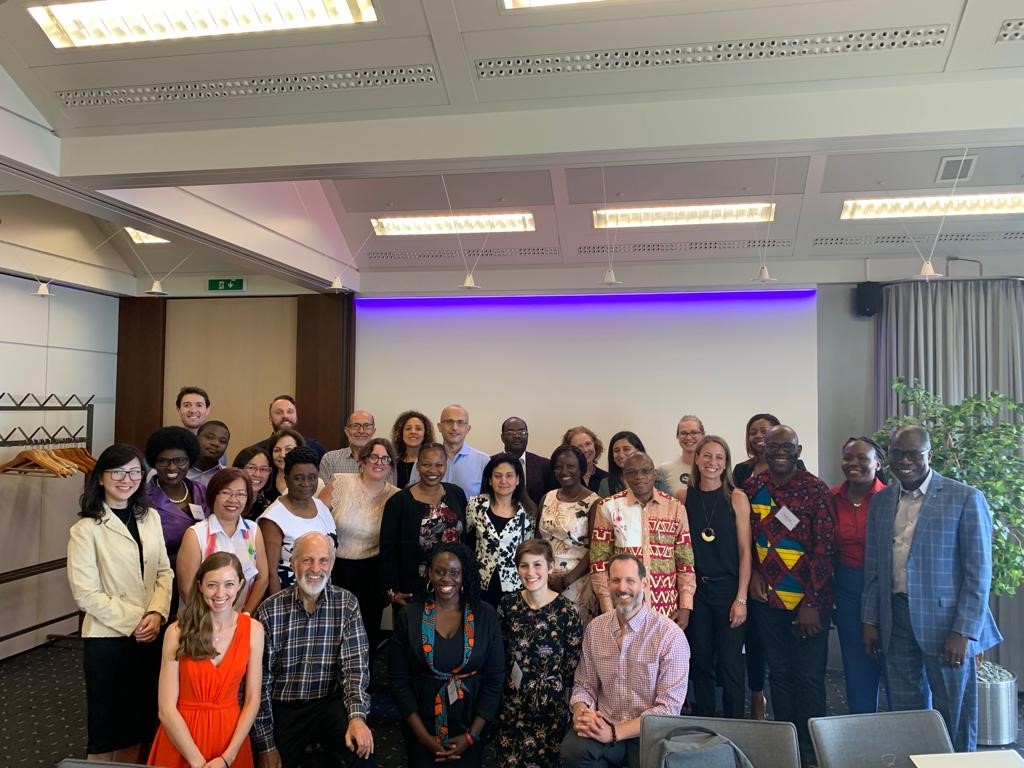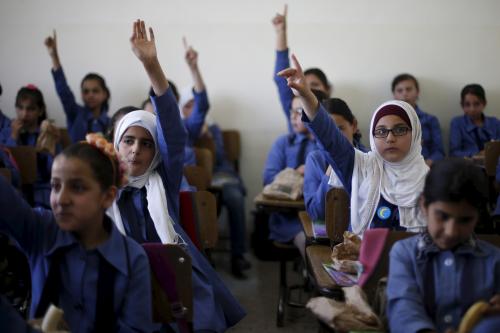This is the first blog post in a series reflecting on key scaling-related themes discussed at the global convening of the Millions Learning Real-time Scaling Labs held in July 2019 in Switzerland.
If there is one thing we have learned from the Center for Universal Education’s Millions Learning project over the past five years, it’s that scaling social change does not just happen automatically. Far from being guaranteed, scaling requires deliberate and strategic planning from the start, a willingness to learn and experiment throughout the process and flexibility to adapt, engagement from a wide variety of stakeholders, and an approach responsive to local needs and priorities.
Last week, the Millions Learning project brought together nearly 30 representatives from the first cohort of Real-time Scaling Labs, an applied research project to learn from, document, and support education initiatives as they scale. The three-day workshop, hosted in Feusisberg, Switzerland by the Jacobs Foundation, assembled a diverse group of civil society leaders and senior government officials from Botswana, Côte d’Ivoire, Indonesia, Iraq, Jordan, Lebanon, the Philippines, and Tanzania. The group planned for the ongoing expansion and sustainability of their labs, shared progress, and collectively reflected on common challenges.
On paper each of these scaling labs has little in common—hailing from different countries across the globe, focusing on completely different education interventions, each at a different stage of scaling—and yet, despite this diversity, participants identified many shared scaling-related challenges and questions across their work and practical areas to learn from each other and problem-solve collectively.
During the workshop, an overarching theme that emerged was the importance of shifting from a project mentality to a systems change approach in scaling—with the aim of expanding impact and altering long-term processes and outcomes in a country, rather than just growing a particular intervention or organization. As part of this conversation, the group discussed the need to approach scaling “beyond ego.” As funders or implementing organizations, it is easy to “fall in love” with one’s project and become too invested in promoting a fixed solution. Participants discussed how the focus should be on long-term impact and being receptive to required adaptations. This includes recognizing what already exists in the system and looking for ways to build upon it. Ms. Devyani Pershad, head of international collaborations at Pratham, stressed this point when discussing implementing the Teaching at the Right Level (TaRL) approach in new country contexts, sharing that TaRL is not replicated—it is adapted—with core aspects maintained and other aspects contextualized. Scaling “beyond ego” may mean a loss of control for the originating organization, which can be an uncomfortable prospect, but is essential to expanding and sustaining impact and moving beyond a project-focused approach.
Building on this point, another key theme that emerged during the discussion was the critical importance of focusing on the problem when it comes to scaling, not the solution. Ms. Rapelang Bogatsu, chief education officer at the Ministry of Basic Education in Botswana, underscored the need for local government actors to feel the urgency of a problem and the need for change, rather than the sense that others are pushing a prefabricated solution. For implementers, this means putting in the time to understand the local system and existing government priorities, including how the government conceives of the problem, in order to frame the scaling process as a direct response to existing concerns and policies. Dr. Leonard Akwilapo, permanent secretary at the Ministry of Education, Science, and Technology in Tanzania, further emphasized this point, reminding the group that just as problems differ from context to context, so must solutions.
A third, related theme throughout the three days was the need for local champions that can drive the proposed change forward. Mr. Faustin Koffi, inspector general for administration and school life at the Ministry of National Education in Côte d’Ivoire and also scaling lab manager for the Ivoirian Real-time Scaling Lab, highlighted the importance of a champion, particularly in the Ministry of Education, who believes in the solution and who has the power to convene actors, build government commitment, and propel the scaling process forward. At the same time, participants recognized the risk of depending on one champion and the need to build support throughout all levels of the government to normalize a change.

This brief summary only scratches the surface of three days of illuminating and thought-provoking conversations. Over the coming weeks, we will publish a series of blogs authored by several participants that reflect on common scaling themes and questions emerging across the labs. As always, we welcome and invite feedback.






Commentary
Reflections from global convening for large-scale impact in education
July 12, 2019